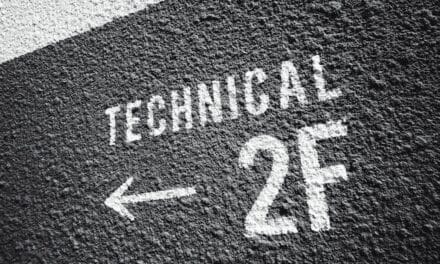In today's dynamic business environment, coaching methodologies tailored for business leaders are not just beneficial; they are essential for navigating complexities and driving organizational success. Did you know that 89% of executives believe coaching is valuable for improving individual performance? As leaders face unprecedented challenges—from evolving market demands to increasing workforce diversity—personalized coaching strategies are crucial for cultivating agility, creativity, and resilience. This blog post will delve into the various coaching methodologies specifically designed for business leaders, exploring their benefits, implementation strategies, and the future landscape of coaching that continues to adapt to new challenges. Join us as we uncover how tailored coaching can empower leaders to achieve greater heights in their organizations.
Understanding Coaching Methodologies Tailored for Business Leaders
Coaching methodologies play a crucial role in the development of effective business leaders. Tailoring these methodologies to the specific needs and challenges faced by executives not only enhances their leadership skills but also drives organizational performance. This section will explore the importance of personalized approaches in leadership coaching, shedding light on how they can transform executive capabilities.
Definition of Coaching Methodologies
Coaching methodologies refer to the structured approaches used by coaches to facilitate personal and professional growth. These methodologies provide a framework for understanding and developing leadership qualities, decision-making processes, and interpersonal skills.
Importance of Tailored Approaches in Leadership Coaching
Tailored coaching methodologies are vital for several reasons:
Individualized Support: Every leader has unique strengths, weaknesses, and challenges. A tailored approach addresses these specific needs, leading to more effective outcomes.
Enhanced Engagement: Leaders are more likely to engage in coaching programs that resonate with their personal experiences and goals.
Alignment with Business Objectives: Customized coaching ensures that leadership development is aligned with the overall vision and strategic goals of the organization.
Coaching methodologies tailored for business leaders focus on leveraging the individual’s existing knowledge and experience while introducing innovative techniques that promote transformational growth. By recognizing and responding to the unique characteristics of business leaders, coaching can be significantly more effective.
For further insights on the impact of coaching on organizational success, you can refer to research conducted by McKinsey & Company on leadership development here.
Key Coaching Methodologies Relevant to Business Leaders
When it comes to coaching methodologies tailored for business leaders, there are several key approaches that effectively meet the unique demands of executive roles. Understanding these methodologies can help organizations implement more effective leadership development programs.
Executive Coaching
Executive coaching focuses on enhancing the skills and effectiveness of senior leaders. This method typically involves one-on-one sessions that allow leaders to delve into their specific challenges while receiving personalized feedback.
Emphasizes skill development in strategic thinking and decision-making.
Provides a confidential space for leaders to explore personal and professional growth.
Helps in navigating complex organizational landscapes.
Transformational Coaching
Transformational coaching is designed to foster deep personal development and a significant shift in perspectives. This approach encourages leaders to evolve by challenging their existing beliefs and assumptions.
Promotes self-awareness and emotional intelligence.
Encourages leaders to embrace change and innovation.
Focuses on creating visionary leaders who inspire and motivate their teams.
Situational Coaching
Situational coaching recognizes that different circumstances call for different leadership styles. This methodology equips leaders with the versatility to adapt their approach based on the context they find themselves in.
Enhances problem-solving skills in various scenarios.
Teaches leaders to evaluate situations pragmatically and determine the best course of action.
Encourages flexibility and situational awareness.
Systemic Coaching
Systemic coaching integrates the understanding of larger systems within which leaders operate. This approach considers the dynamics of teams and organizations as interconnected parts of a whole.
Highlights the importance of collaboration and team dynamics.
Offers tools for navigating organizational structures and cultures.
Encourages leaders to think beyond individual performance to consider the broader impact of decisions.
By integrating these coaching methodologies tailored for business leaders, organizations can foster a culture of continuous learning and improvement. For a deeper insight into different coaching approaches, you may explore resources from Harvard Business Review here.
Benefits of Tailored Coaching Methodologies
The implementation of coaching methodologies tailored for business leaders offers numerous advantages that can significantly impact both individual leaders and the organization as a whole. By focusing on personalized approaches, companies can foster leadership that drives results.
Enhanced Decision-Making
Tailored coaching methodologies provide leaders with the tools and insights necessary to make informed decisions. These methods encourage critical thinking, helping leaders evaluate options and consider potential outcomes.
Develops analytical skills to assess complex situations.
Encourages leaders to seek diverse perspectives in decision-making.
Boosts confidence in making high-stakes choices.
Improved Team Dynamics
Effective coaching creates stronger team dynamics by enhancing communication and collaboration among team members. Leaders who undergo tailored coaching are better equipped to foster a positive team environment.
Promotes open dialogue and feedback within teams.
Equips leaders to manage conflicts effectively.
Cultivates an inclusive culture where all voices are heard.
Greater Adaptability to Change
In today's fast-paced business environment, adaptability is crucial for success. Tailored coaching methodologies empower leaders to navigate changes with confidence and resilience.
Trains leaders to embrace change rather than resist it.
Focuses on developing agility and innovative thinking.
Encourages the adoption of a growth mindset.
Increased Employee Engagement and Retention
When business leaders improve their leadership capabilities through tailored coaching, they contribute to higher employee satisfaction and retention. Engaged employees tend to be more productive and committed to their organization.
Strengthens relationships between leaders and team members.
Creates a supportive work culture that values employee well-being.
Reduces turnover rates, saving costs associated with recruitment and training.
By leveraging coaching methodologies tailored for business leaders, organizations can pave the way for enhanced leadership effectiveness and overall business success. For more information about the impact of coaching on employee engagement, refer to research by Gallup here.
Identifying the Right Coaching Methodology for Your Leadership Style
Selecting the most suitable coaching methodologies tailored for business leaders is essential for maximizing the effectiveness of leadership development programs. Understanding personal leadership styles and aligning them with the right coaching approach can yield transformational results.
Assessing Personal Leadership Strengths and Weaknesses
Before identifying the right methodology, leaders should conduct a self-assessment to recognize their strengths and areas for improvement. This self-awareness is critical for choosing an effective coaching approach.
Self-Reflection: Consider your past leadership experiences and how they shaped your current style.
Feedback: Solicit input from peers and team members to gain insights into your leadership impact.
360-Degree Assessment: Utilize formal assessments to capture a comprehensive view of your leadership abilities.
Aligning Coaching Methodologies with Business Goals
Once personal strengths are identified, the next step is to ensure that the chosen coaching methodologies align with the broader objectives of the organization. This synergy enhances the overall effectiveness of leadership initiatives.
Define Organizational Goals: Clearly articulate short-term and long-term business goals.
Match Methodologies to Goals: Select coaching approaches that directly support these objectives, such as:
Transformational Coaching for fostering innovation.
Situational Coaching for improving adaptability and problem-solving.
Seek Balance: Ensure a mix of methodologies to cover diverse leadership needs and changing business landscapes.
By thoughtfully assessing leadership strengths and aligning coaching methodologies tailored for business leaders with organizational goals, companies can create a powerful foundation for effective leadership development. For further insights on leadership styles and alignment, explore resources from Deloitte here.
Implementing Coaching Methodologies in Your Organization
Successfully integrating coaching methodologies tailored for business leaders into your organization requires a strategic approach. Taking deliberate steps to embed these methodologies into the leadership framework will enhance their effectiveness and long-term impact.
Steps to Integrate Coaching Programs into Leadership Development
Identify Key Stakeholders: Engage senior leadership and HR professionals to gain support and align on the objectives of implementing coaching methodologies.
Design Tailored Coaching Programs: Develop programs that reflect the unique needs of your leaders and align with organizational goals. This can include:
Personalized coaching sessions specific to each leader's challenges.
Group coaching workshops to encourage peer learning and collaboration.
Train Coaches: Ensure that the coaches involved are adequately trained in the specific methodologies being implemented. This includes:
Familiarity with various coaching styles.
Understanding the unique challenges faced by business leaders.
Promote a Coaching Culture: Encourage an organizational culture that values coaching and development as ongoing processes rather than one-time events. This can be done through:
Regular communication of success stories and benefits.
Providing resources and tools for continuous development.
Role of Technology in Facilitating Coaching Methodologies
Leveraging technology can enhance the implementation of coaching methodologies by making the process more accessible and efficient. Consider the following technological tools:
Learning Management Systems (LMS): For structured e-learning modules that complement coaching sessions.
Video Conferencing Tools: To enable remote coaching sessions, making it easier for leaders across different locations to participate.
Feedback and Assessment Tools: Utilize platforms that facilitate real-time feedback and coaching assessments, providing data to measure progress.
Importance of Continuous Feedback and Assessment
Ongoing feedback and assessment are crucial to ensure that the coaching methodologies are effective and are producing the desired outcomes. Establish a routine for:
Conducting regular check-ins and assessments to gauge progress.
Adjusting coaching strategies based on leader feedback and evolving business needs.
By implementing coaching methodologies tailored for business leaders thoughtfully and strategically, organizations can cultivate a dynamic workforce capable of navigating challenges and driving growth. For additional resources on developing effective coaching programs, visit the Korn Ferry website here.
Measuring the Impact of Tailored Coaching Methodologies
To ensure that coaching methodologies tailored for business leaders are effective, it is essential to measure their impact on both individual performance and organizational outcomes. Establishing strong metrics and evaluation techniques will enable organizations to refine their coaching strategies over time.
Key Performance Indicators (KPIs) for Success
Identifying specific KPIs allows organizations to track the progress and effectiveness of their coaching programs. Consider the following indicators:
Improved Leadership Competencies: Measure growth in key leadership skills, such as communication, decision-making, and team management.
Employee Engagement Scores: Regularly assess employee satisfaction and engagement levels to gauge the indirect effects of coaching on the broader workforce.
Turnover Rates: Monitor staff retention rates before and after implementing coaching programs to see if there is a correlation with improved leadership practices.
Performance Appraisals: Use formal performance evaluations to assess the direct impact of coaching on individual leaders' effectiveness and overall team performance.
Tools and Techniques for Evaluation
To effectively measure the impact of coaching methodologies, organizations can utilize a variety of tools and techniques:
Regular Surveys and Feedback: Implement employee and leader surveys to collect feedback on the coaching process and its perceived effectiveness.
Performance Tracking Software: Utilize software that tracks individual and team performance metrics over time to compare pre and post-coaching results.
360-Degree Feedback: Engage in 360-degree feedback processes to gather comprehensive insights from peers, direct reports, and supervisors regarding a leader's development journey.
Continuous Improvement through Assessments
Using the gathered data, organizations can continuously improve coaching methodologies tailored for business leaders. Regularly assess:
Coaching Content and Delivery: Evaluate whether the materials and coaching techniques are still relevant and effective for current business challenges.
Adjustment of Coaching Goals: Based on feedback and assessment results, adapt coaching objectives to better align with both leader aspirations and organizational priorities.
By systematically measuring the impact of tailored coaching methodologies, organizations can validate their investments in leadership development and foster an environment of continuous growth. For additional insights on evaluating coaching effectiveness, consult resources from the CIPD here.
The Future of Coaching Methodologies for Business Leaders
As the business landscape continues to evolve, so too must the coaching methodologies tailored for business leaders. Understanding the emerging trends and innovations will help organizations prepare for the challenges and opportunities that lie ahead in leadership development.
Trends Shaping the Coaching Landscape
Several key trends are currently influencing the direction of coaching methodologies:
Digital Transformation: The increasing reliance on technology necessitates that coaching programs adopt digital tools, such as virtual coaching sessions and online learning platforms.
Focus on Diversity and Inclusion: A greater emphasis on diversity and inclusion in leadership roles is prompting tailored coaching that addresses the unique experiences of underrepresented groups.
Integrative Approaches: Organizations are beginning to blend traditional coaching with other development methods, such as mentoring, peer coaching, and experiential learning.
Data-Driven Decision Making: The use of data analytics to assess leadership effectiveness is becoming more prevalent, allowing for evidence-based adjustments in coaching methodologies.
The Role of Artificial Intelligence and Data Analytics
Artificial intelligence (AI) and data analytics are set to revolutionize coaching practices by providing insights that were previously difficult to capture. Key areas where these technologies can make an impact include:
Personalized Learning Paths: AI can assist in creating individualized coaching programs based on leader's performance data and learning preferences.
Real-Time Feedback: Automated feedback mechanisms can provide timely insights that help leaders adjust their behaviors and strategies on the fly.
Predictive Analytics: Organizations can use analytics to forecast leadership trends and identify high-potential individuals, ensuring proactive development efforts.
Preparing for Evolving Needs of Business Leadership
To effectively harness the future of coaching methodologies, organizations should:
Stay Informed: Keep abreast of the latest research and developments in coaching practices to ensure alignment with cutting-edge trends.
Encourage Adaptability: Foster a culture where leaders are encouraged to embrace change and pursue continuous learning.
Invest in Technology: Allocate resources for innovative tools that facilitate coaching and promote collaboration among leaders.
By proactively addressing these trends and embracing new technologies, organizations can enhance their coaching methodologies tailored for business leaders, equipping them to navigate an ever-changing business environment. For more insights into future trends in leadership development, check out reports from PwC here.
Frequently Asked Questions
What are coaching methodologies tailored for business leaders?
Coaching methodologies tailored for business leaders are structured approaches designed to enhance leadership skills, decision-making, and team dynamics specifically for executives. These methodologies focus on addressing individual leaders' strengths and weaknesses within the context of their unique challenges and organizational goals.
How do I choose the right coaching methodology for my leadership style?
Choosing the right coaching methodology involves assessing your personal leadership strengths and weaknesses, as well as aligning your development needs with your organization's goals. Self-reflection, gathering feedback from peers, and utilizing performance assessments can all provide insight into which coaching approach may be most effective for you.
What benefits can I expect from tailored coaching methodologies?
Tailored coaching methodologies offer several benefits, including enhanced decision-making capabilities, improved team dynamics, greater adaptability to change, and increased employee engagement. By focusing on individual leaders' needs, these methodologies help create a more effective and cohesive leadership approach.
How can organizations implement coaching methodologies effectively?
Organizations can implement coaching methodologies effectively by engaging key stakeholders, designing tailored coaching programs, training coaches, and promoting a culture that values continuous development. Leveraging technology and maintaining a system of ongoing feedback and assessment will further enhance the integration of coaching practices.
What is the future of coaching methodologies for business leaders?
The future of coaching methodologies for business leaders is being shaped by trends such as digital transformation, a focus on diversity and inclusion, and the integration of data-driven decision-making. As technology continues to advance, organizations will likely adopt more personalized and innovative coaching approaches to meet the evolving demands of leadership.





